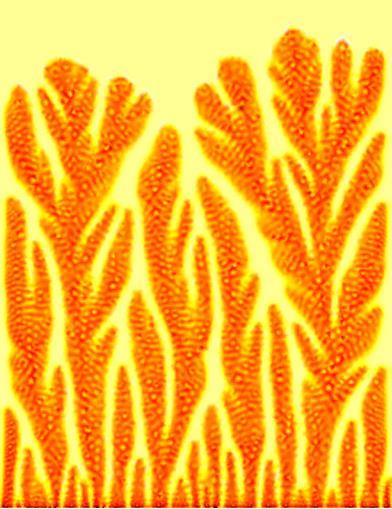Multiscale modeling and mathematical analysis of materials
The two biggest challenges in mastering transport through heterogeneously active materials are computational intractability, and presence of uncertainty: most microstructures are either active (freely evolving), or have incomplete input data making exact computations impossible.

Recently, there has been a significant progress in the understanding of intractability, based on mathematical theory of homogenization and efficient multiscale numerical methods. For several problems posed in periodic microstructures,
one mathematically controls the macroscopic transfer of mass coupled with heat and wettness and can design optimal approximation algorithms. When smart packaging materials are involved, multiscale problems exhibit a complex heat- and wettness-controlled activity of the microstructures and are much less understood. The situation is worse for coping with uncertainty. Most of the membrane performance predictions are based on ad hoc numerical explorations of sequences of realisations and there is no deeper understanding of what makes a particular membrane a smart packaging or not. The holy grail is getting a priori grips on the time-space evolution of the permeability tensor.
Adrian Muntean and his multiscale team aim at breaking important new ground in the theory of multiscale approximation. The particular directions currently of interest are (i) extend homogenization results to thermodiffusion in periodic, locally-periodic and random media, (ii) develop new stochastic particle method tools in domains with fixed and mobile obstacles, (iii) design new algorithms for measure-valued equations on thin fibers, (iv) develop feedback-like error control estimates for multiscale Galerkin approximates.
Preliminary results are reported for settings involving flow in reactive porous media in the PhD thesis by Tasnim Fatima (2013) for the corrosion of concrete, in the PhD thesis by Oleh Krehel (2014) for the motion of colloidal particles with potential applications to drug-delivery design, and in the joint work with Dr. Ekeoma Ijioma (Meiji University, Japan) on filtration combustion.
This project is financed by the “Mathematics of Planet Earth” programme of the Dutch Science Foundation via the project ”Theoretical Estimates of Heat Losses in Geothermal Wells” (grant nr. 657.014.004)

